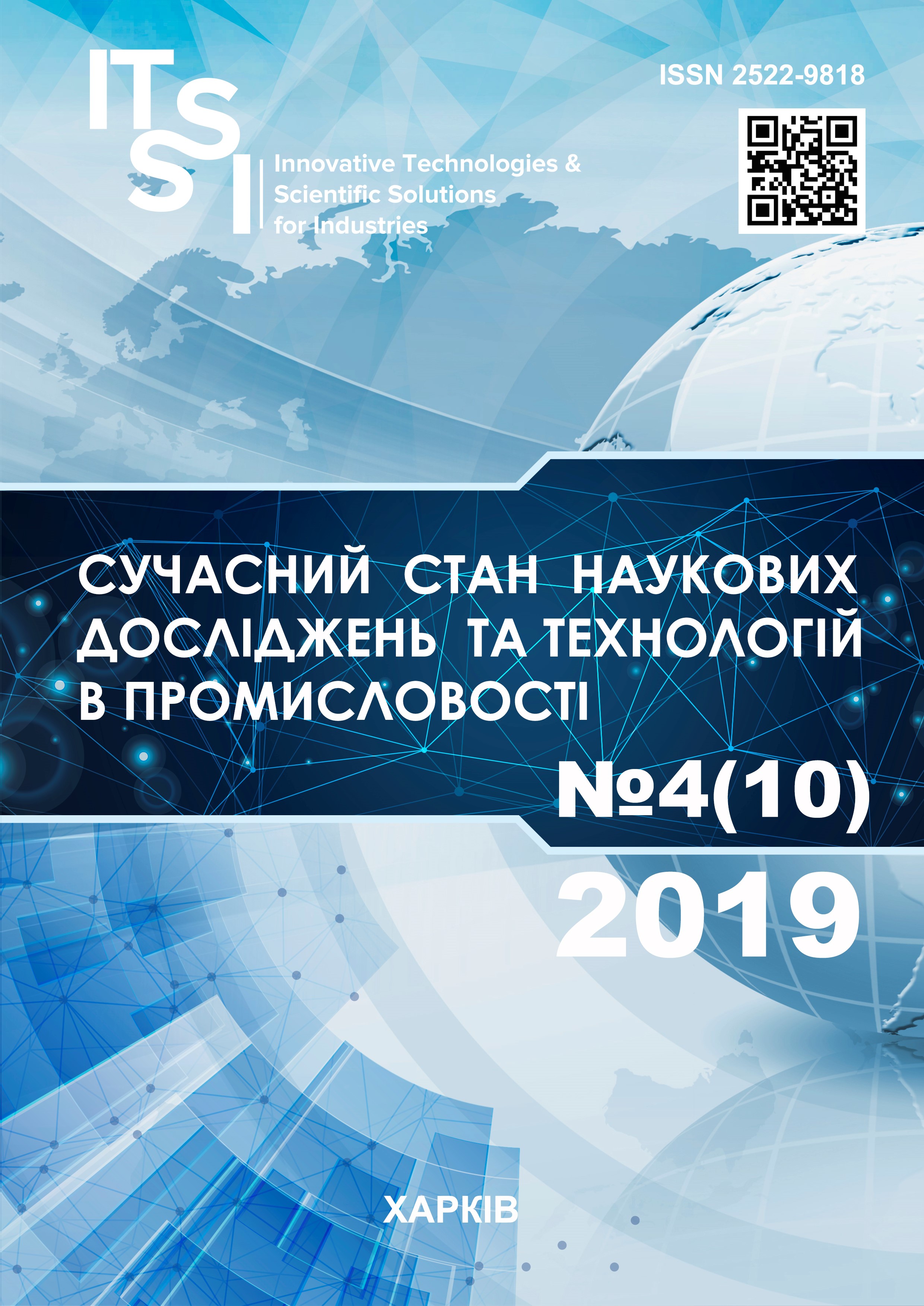BALANCED MANAGEMENT OF STAKEHOLDER RELATIONSHIPS IN THE HEATING SPHERE
DOI:
https://doi.org/10.30837/2522-9818.2019.10.101Keywords:
municipal heating, municipal heating companies, relationship management, stakeholders, energy efficiency, organizational and economic modelAbstract
The article is devoted to the study of theoretical principles and practical aspects of managing relationships with stakeholders of municipal heating companies. The subject of the study is a set of theoretical, methodological and practical aspects for ensuring balanced management of relations with the stakeholders of municipal heating companies. The purpose of the article is to develop theoretical and methodological provisions and substantiate practical recommendations for ensuring a balanced management of these relationships. Tasks of work: to research and systematize the conceptual apparatus of ensuring the management of relations with the stakeholders of municipal heat companies; to justify the organizational principles of managing these relationships; to offer analytical and applied support for managing them on a balanced scorecard. During the research were used methods: abstract-logical analysis, theoretical generalization, systemic and statistical analysis, systemic and statistical analysis, economic-mathematical methods, graphical method. The paper generalizes the economic characteristics of the activity of district heating utilities and develops the directions of development of relations with stakeholders in the process of reforming the housing and municipal services of Ukraine on the basis of the analysis of the efficiency of the municipal heating companies in developed countries of Europe. Strategic directions for the development of district heating utilities by providing balanced stakeholder relationship management are substantiated. Conclusions. It is proposed to use a balanced scorecard, which allows, based on the evaluation of financial and non-financial indicators of enterprise performance, to identify trends of change of each of four key areas of activity to achieve the goal of MHC in meeting the public needs of consumers, profit for the development of the enterprise, ensure the interests of its employees and their satisfaction economic and social needs based on stakeholder reconciliation.
References
On heat supply: Law of Ukraine of June 2, 2005, Information of the Verkhovna Rada of Ukraine, 2005, No. 2633-ІV - Art. 373.
On the procedure for setting tariffs for the production, transportation, supply of heat and services for district heating and hot water supply : Resolution of the National Commission for Regulation in the Fields of Energy and Utilities of March 24, 2016 No. 377.
Mykytyuk, P. P. (2018), "Methodical approaches to the formation of the tariff policy of thermal energy production in the conditions of multi-fuel regime", Economic analysis, Vol. 28, No. 1, P. 79–86.
Brych, V. (2017), "Building a market for energy services: world experience and Ukrainian realities", Bulletin of the Ternopil National Economic University, P. 7–20.
Inyakin, V. N. (2006), "Ensuring stable functioning of housing and communal services", Scientific papers of Donetsk National Technical University. Series: Economic, Issue 30 (114), P. 132–139.
Kamyshnikovа, E. V. (2016), "Collaborative approach to stakeholder management in the framework of corporate social responsibility", Problems and prospects of entrepreneurship development, No. 1, P. 84–88, available at : http://nbuv.gov.ua/UJRN/piprp_2016_1_15
Freeman, R. (1984), Edward Strategic management: a stakeholder approach, Pitman, 279 р.
Parfenenko, Yu. (2017), "The model of decision support in centralized heating management on the consumer side", Innovative Technologies and Scientific Solutions for Industries, No. 1 (1), P. 69–74. DOI: https://doi.org/10.30837/2522-9818.2017.1.069.
Kochan, Т. A. (2000), "Toward a Stakeholder theory of the firm: the Saturn partnership", Organization Science, Vol. 11, No. 4, P. 367–386.
Bass, Yu. V. (2013), "The Stakeholder Concept in the Corporate Social Responsibility System", Management and Marketing, No. 4 (32), Vol. 2, P. 115–120.
Post, J. E., Preston, L., Sachs, S. (2002), Redefining the Corporation: Stakeholder Management and Organizational Wealth, Stanford University Press, California, 320 p.
Miroshnichenko, Yu. O. (2018), "A model of stakeholder interaction in the real economy of Ukraine in the context of CSR" Eastern Europe: Economics, Business and Management, Vol. 5, P. 71–74.
Wet, V.V. (2017), "Procedure for the analysis of enterprise stakeholders", Mukachevo State University, Vol. 12, P. 348–353.
Strelkov, O. (2016), "Development of the enterprise due to the interests of stakeholders", East: Economic Sciences, No. 6 (146), P. 49–55.
AA1000 Stakeholder Engagement Standard (2015), 40 p. [On-line], available at : https://www.accountability.org/wp-content/uploads/2016/10/AA1000SES_2015.pdf
Downloads
How to Cite
Issue
Section
License
Copyright (c) 2019 Tetiana Momot, Irina Sincheskul, Kseniia Savenko, Karina Bukrieieva

This work is licensed under a Creative Commons Attribution-NonCommercial-ShareAlike 4.0 International License.
Our journal abides by the Creative Commons copyright rights and permissions for open access journals.
Authors who publish with this journal agree to the following terms:
Authors hold the copyright without restrictions and grant the journal right of first publication with the work simultaneously licensed under a Creative Commons Attribution-NonCommercial-ShareAlike 4.0 International License (CC BY-NC-SA 4.0) that allows others to share the work with an acknowledgment of the work's authorship and initial publication in this journal.
Authors are able to enter into separate, additional contractual arrangements for the non-commercial and non-exclusive distribution of the journal's published version of the work (e.g., post it to an institutional repository or publish it in a book), with an acknowledgment of its initial publication in this journal.
Authors are permitted and encouraged to post their published work online (e.g., in institutional repositories or on their website) as it can lead to productive exchanges, as well as earlier and greater citation of published work.














